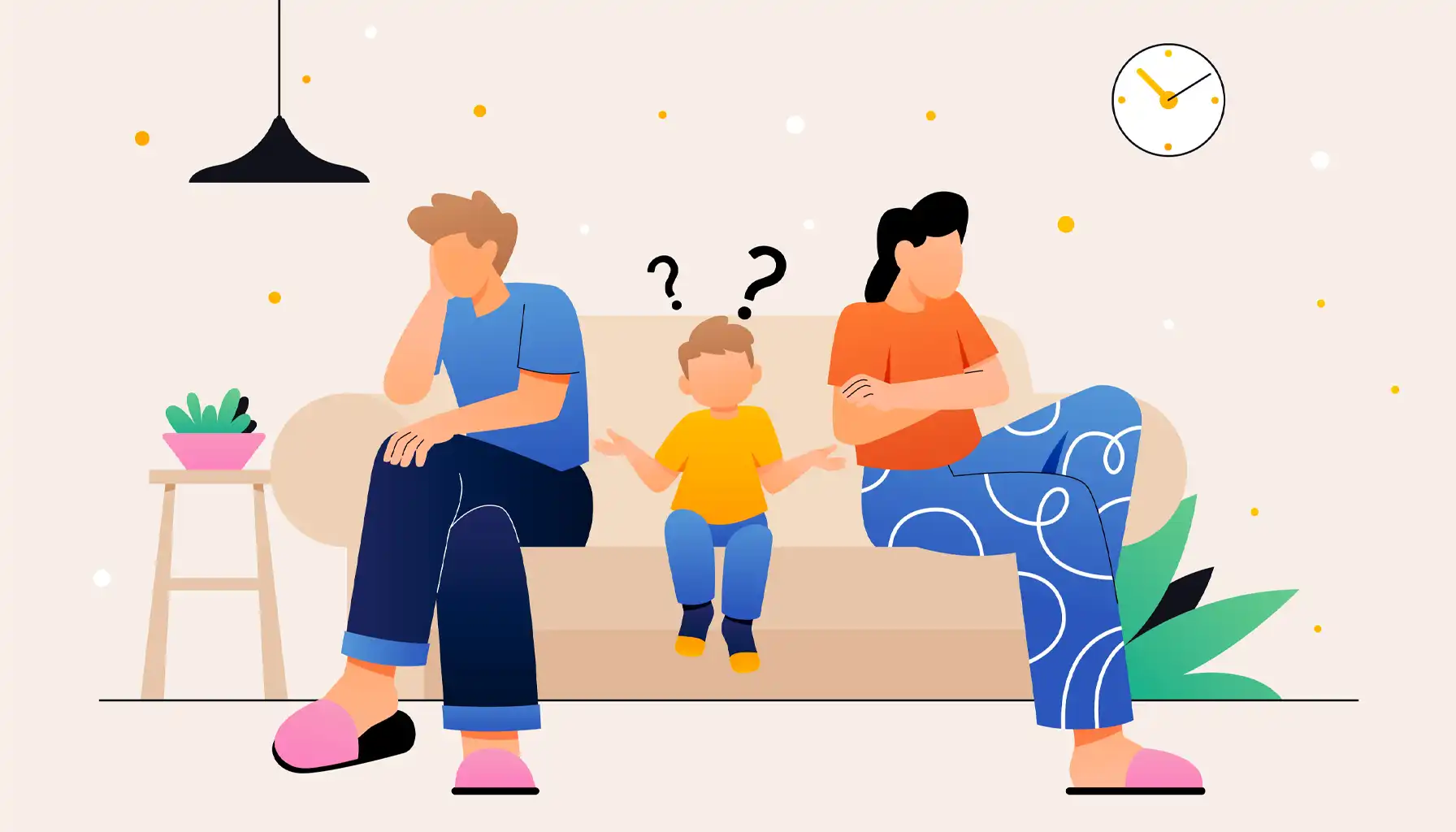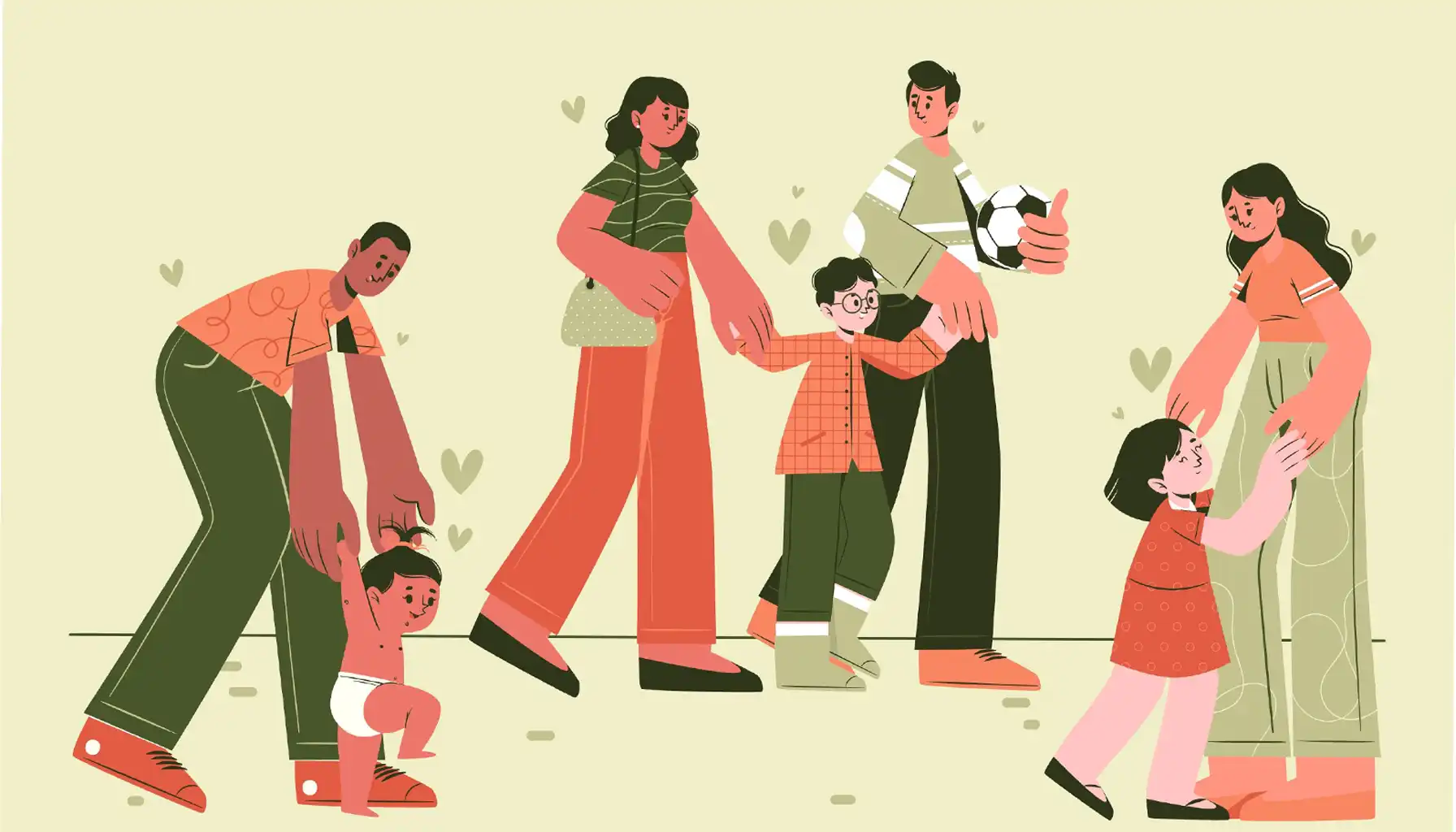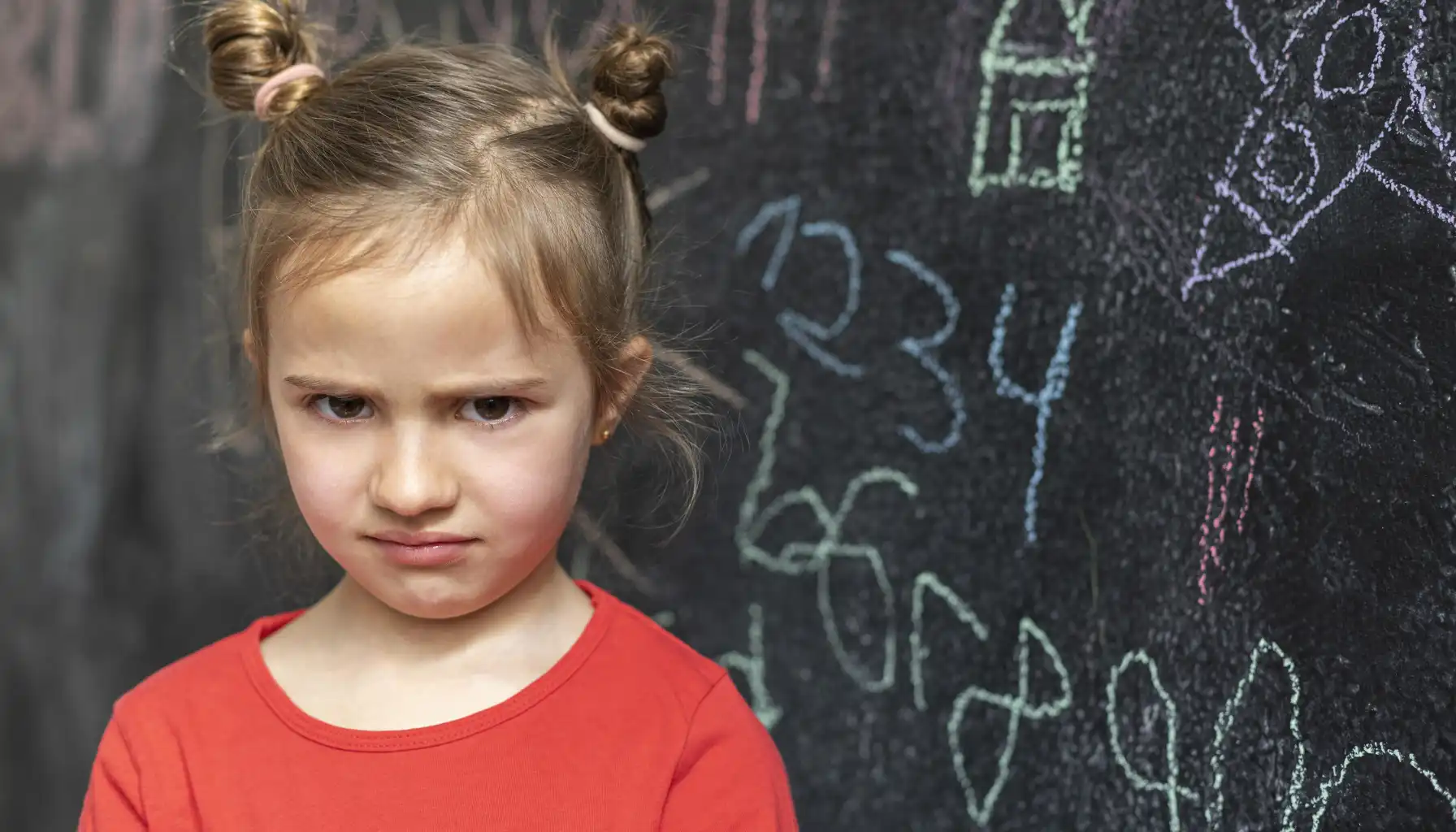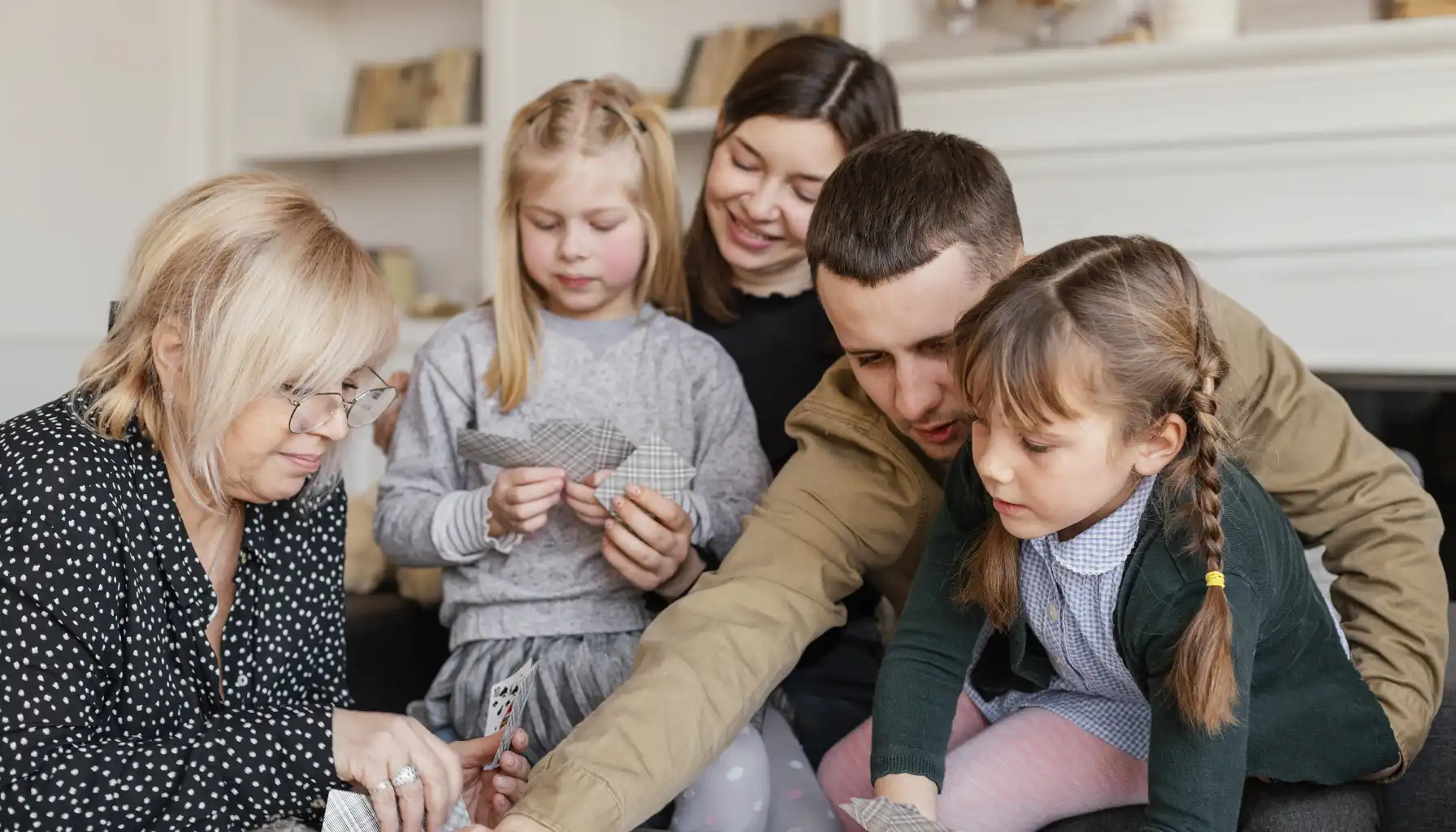Scared of Kids? Here’s What You Should Know About Pedophobia

Contents:
“…Fathers, do not exasperate your children; instead, bring them up in the training…”
Children are like flowers – they need care, attention, and warmth, but not all adults feel the same. For some, it is a genuine struggle to stay near kids, tolerate their noises, and handle their unpredictable behavior without anxiety or stress – and this discomfort can be surprising even to themselves.
This reaction has a name – pedophobia. Although one may see it as a moral failing or dislike, it is a real psychological experience that causes emotional and physical reactions that make interacting with children challenging and even unbearable at times. But what is the pedophobia meaning? How does it manifest, and why is addressing it through cognitive training so important?

What is Pedophobia?
Pedophobia is the term used to describe a specific phobia that consists in deep-embedded fear, dread, or aversion to children, which might not be natural at first sight, though quite common once we look closer at social and psychological patterns of a human. For one to understand, it is not a simple dislike or frustration but a real psychological problem that needs attention on the spot.
This fear can range in intensity. Sometimes, it is an anticipated painful experience; sometimes, it is a dark, ubiquitous burden that permeates every encounter with the young. A lack of affection should not be considered inadequate, for it is just a psychological response that deserves understanding rather than judgment.
Nonetheless, the only thing that unites all its types is an overwhelming discomfort that affects all spheres of life at once, and this aggravates the course of living indeed.
Historical and Cultural Context

There is always the dilemma of how one should treat other people, and apart from respect, people usually expect to be heard, valued, and treated with humanity. Nonetheless, it might be difficult for some to express their kindness in situations where deep-seated fears interfere with empathy.
In 1983, writer and activist Letty Cottin Pogrebin argued that while American culture often presents itself as child-loving, it might also be characterized by punitive, fearful, and dismissive attitudes toward youth. According to the scholar, pedophobia is quite a widespread phenomenon, with exploitation, neglect, and even systemic mistreatment of children being used as evidence of society’s contradictory stance.
Beyond that, cultural attitudes toward children intrinsically differ from culture to culture. For instance, a Japanese Cabinet Office survey conducted in 2009 revealed a striking shift in views on parenthood: more than 40 percent of respondents said they did not feel the need to have children, even within marriage. Among women in their 20s and 30s, the percentages were even higher, which meant that children were not always seen as central to adult life.
Although it does not truly reflect the prevalence of pedophobia, it still indicates a changing perspective on children in modern societies.
Causes of Pedophobia

Many phobias do not appear on their own. Instead, they need grounds to be based on, which are usually different, depending on a person, their preferences, past experiences, and psychological picture as a whole. So, here are a few common causes that may contribute to the development of this fear:
Negative childhood experiences: Past trauma, neglect, or unpleasant encounters with children.
Anxiety about unpredictability: Children’s spontaneous, loud, and energetic behavior.
Cultural and societal influences: Norms or attitudes that portray children as burdens.
Personal temperament: High sensitivity, introversion, or anxious personality traits.
Fear of responsibility: Stress linked to caregiving duties and parental expectations.
Underlying psychological conditions: Generalized anxiety, genetic anxiety, social anxiety, avoidant personality disorder, or related phobias.
Signs and Symptoms
Manifestations of this phobia are quite obvious, for hardly could one miss the visible signs of discomfort or anxiety in the presence of children. Nonetheless, it is mainly about a mix of emotional, physical, and behavioral responses that create a complete picture of a person with this type of fear.
Category | Manifestations |
Emotional reactions | Anxiety, dread, irritability, or discomfort around children |
Behavioral patterns | Avoidance of children, reluctance to visit child-centered places |
Physical responses | Rapid heartbeat, sweating, muscle tension, restlessness |
Cognitive patterns | Persistent negative thoughts, exaggerated fears, intrusive worries |
Social difficulties | Strained family relationships, avoidance of parenting roles, reluctance to attend events with kids |
Pedophobia vs. Normal Discomfort
Not everyone feels discomfort while being surrounded by kids, and the opposite situation is also normal for a person to go through. In fact, some adults may simply prefer quiet spaces, where children's noisy behavior is not expected. This type of discomfort, though, is typically situational and does not rise to the level of a psychological phobia.
Pedophobia, however, goes much further: it does not make you uncomfortable – it overwhelms. In this case, the course of living is usually significantly changed, for it becomes full of emotional distress, avoidance behaviors, and even physical shifts. The difference is in intensity and impact. Normal discomfort is manageable and does not usually interfere with daily functioning, whereas pedophobia can limit social interactions, strain relationships, and influence major life decisions.
This is a real problem that needs attention – it cannot disappear on its own.
How to Overcome the Fear of Children

Fear, dread, or avoidance toward children does not have to be permanent – these should be treated on the spot so as not to miss a chance to live a full and balanced life without unnecessary limitations. Nevertheless, it is not about complete avoidance or neglect but acceptance of what you feel instead. So, here are a few ways for one to break free (only when combined with professional medical treatment, provided by healthcare specialists, for sure).
Cognitive Behavioral Techniques (CBT and Exposure Therapy)
One of the most efficient methods usually involves cognitive behavioral therapy, for it usually involves the following:
Cognitive restructuring: Identifying and challenging negative or irrational beliefs one holds about children (e.g., “They’ll always cause chaos”) and replacing them with more reasonable thoughts.
Gradual exposure: Starting with small, low-stakes interactions (e.g., being in the same room with children) and gradually increasing contact as comfort grows.
Relaxation and grounding exercises: Deep breathing, progressive muscle relaxation, mindfulness meditation to reduce physiological stress when confronted with triggers.
Systematic desensitization: Pairing exposure with relaxation to slowly weaken fear responses.
Psychoeducation
What is more, learning about child development, behavior, and boundaries can reduce irrational fears, as well as promote understanding the distinction between realistic risks and exaggerated danger perceptions (let alone reflecting on one’s own experiences or cultural messages that shaped the fear).
For Those Who Cannot Wait – Mind Elevate
For people seeking quick and practical support, we recommend that you employ apps like Mind Elevate to keep your brain working (and ready for further help). As such, it features over 35 cognitive training games that target memory, attention, logical reasoning, math fluency, and even musical perception for you to stay calm, think clearly, and manage stressful situations more effectively.
Train your brain to be more flexible – this is where your emotional resilience starts.





